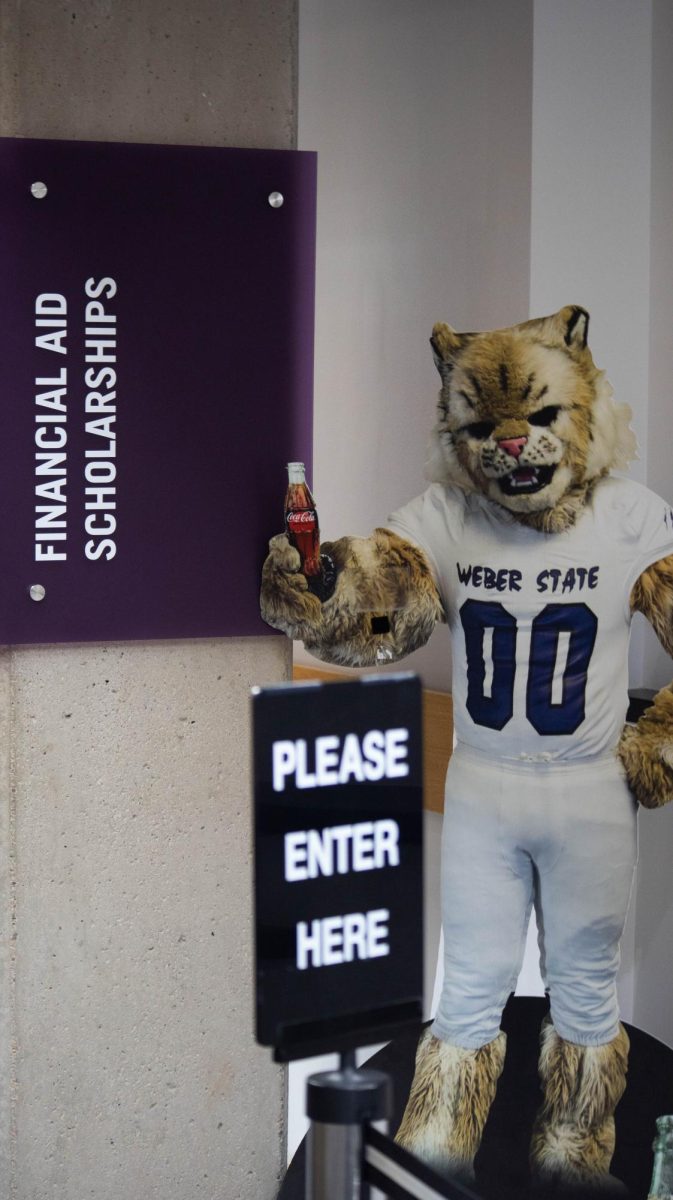
Graduating high school is a milestone in every teenager’s life, brimming with excitement and the hopes of greatness. The anticipation of college can incite fear and confusion, though. It can be difficult transitioning from a small campus to a large, multi-building one with thousands of students of all ages. For individuals living with learning or physical disabilities, the transition can be overwhelming and intimidating.
Weber State University Services for Students with Disabilities provides assistance for students who have special needs and give them a little extra help figuring things out on campus. Angela McLean, WSU disability services specialist, said students transitioning from high school to college often lack the support and help needed and tend not to be successful.
“During the first year they basically drop off or, (if) it’s very hard, they drop out,” McLean said. “So we’ve always looked at ways to improve that transition, but it’s not really a funded program or mandated legally, so this office doesn’t really have a lot of resources for that.”
Ryan Evans, an employee of SSD and a WSU adjunct English instructor, sought a grant through the Alan E. and Jeanne N. Hall Endowment for Community Outreach foundation to support different outreach activities and programs. Evans and WSU business management senior Crystal Maughan worked together to write the grant. It assisted them in developing a program, which would reach out to local high schools, called the WSU Transition Program.
After working with just Ogden High School, Evans and Maughan were unable to get enough students for the grant requirements and decided they needed to push outside Ogden.
“We have contacted most of the Weber and Davis high schools now,” Maughan said. “We want to offer WSUTP to all students who need the help.”
Maughan, who is now the director for WSUTP and is also a student with a disability, has structured the program to provide information, help and specifically a peer guide. The peer guides are all volunteer students with disabilities who have already made the successful transition into college and can communicate and work with the freshmen to help their first year go more smoothly.
“There is just so much students with disabilities have to do in terms of providing documentation (and to) communicate with their professors about their needs,” McLean said. “It’s hard, in addition to being a first-year student.”
WSUTP must fulfill a few requirements for the grant.
“One of the requirements for the grant was that we needed to have a community partner, and Ogden High fulfilled that requirement,” Evans said. “Honestly, we wanted 10 students to kind of build as a test pilot, and so we wanted to invite as many students until we had those 10, and we have actually ended up with 13.”
The mission of the program is to focus on students who might not think of college or university as an option because of their disabilities, McLean said. When going to the high schools, McLean, Evans and Maughan worked with large groups as well as in individual sessions to make sure the students were comfortable discussing their needs, so they could get involved with the program if they chose to.
After students apply for the program, they get their information packets and set up a time to meet with their peer guides to discuss concerns, like how they get funding, how they get diagnosed and what documentation is needed, all of which can be complicated.
On the evening of Aug. 23, all freshmen and peer guides met in the Student Services Building, to meet for the first time for some, and to get more acquainted for others. Maughan and McLean discussed some areas most students have difficulties with, such as math and English, and reiterated that each of them have a peer guide to answer questions after school starts.
As the freshmen trickled in, their eyes filled with excitement and a little confusion. They were urged to ask questions at any time and were told if they needed help finding their classes or other services, guides would take them to those locations that evening. Each freshman was also provided a backpack filled with notebooks, pens, highlighters, folders, blank study cards, gum and many other supplies needed to start their college career, all provided by the campus bookstore. Maughan explained she read a research study, “Effects of chewing gum on cognitive function, mood and physiology in stressed and non-stressed volunteers,” which showed chewing gum while taking a test can help students with ADHD stay focused, and she finds it has helped her tremendously.
This fall is the first semester WSUTP has been implemented, so there are going to be some kinks, McLean said. They expect the numbers will increase as the program grows, and, being a volunteer organization run by students with disabilities, their hopes are that transitioning students will become peer guides for the future participants.













